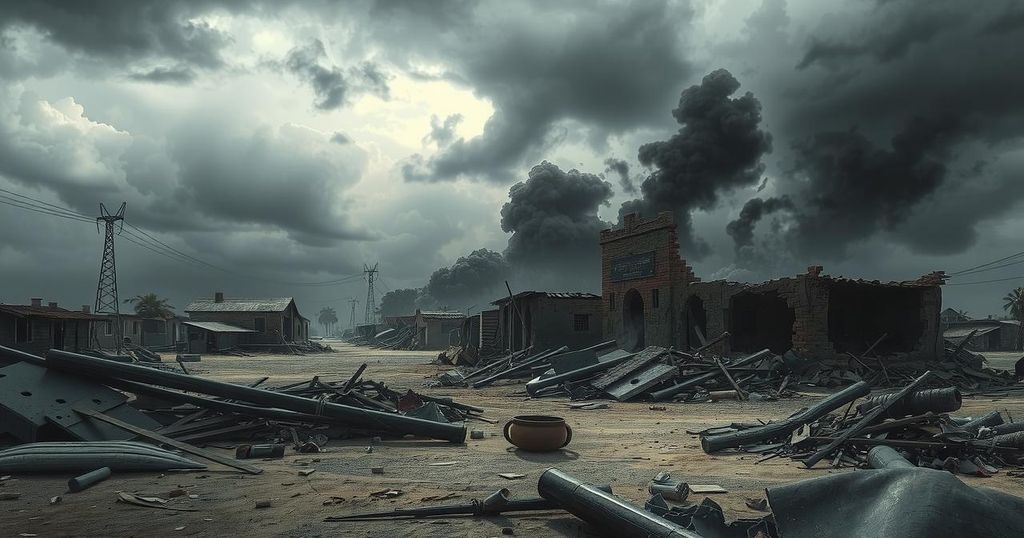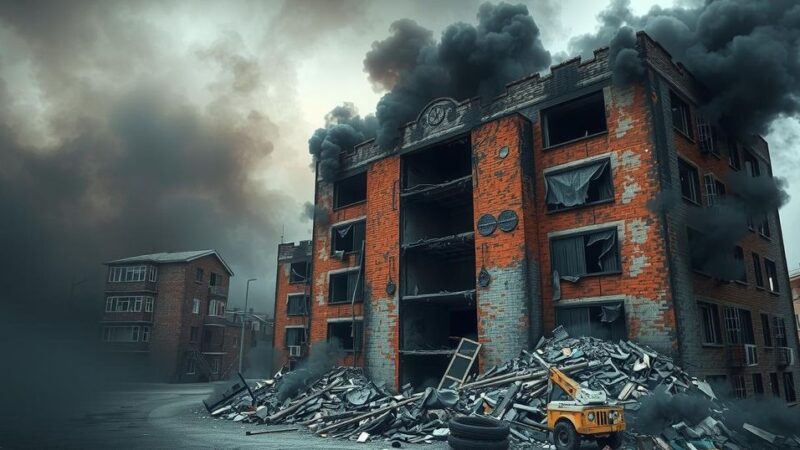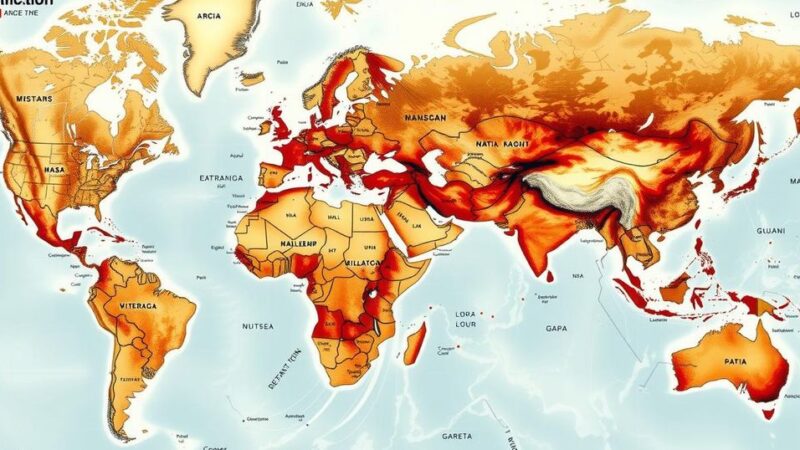An airstrike by South Sudan’s airforce killed at least 19 in Nasir, amid tensions with the White Army following government withdrawals. Allegations of political collaboration and retaliatory action fuel fears of renewed civil war. Uganda’s military presence in South Sudan adds to the complexities surrounding the violence.
An airstrike conducted by the South Sudanese airforce resulted in the deaths of at least 19 individuals in the eastern town of Nasir, as reported by local residents. This incident occurred shortly after government forces retreated from the area amid violent clashes with an ethnic militia, the White Army, composed largely of armed Nuer youths. The fighting had raised concerns about a potential resurgence of the civil war that raged from 2013 to 2018, claiming hundreds of thousands of lives.
The South Sudanese government has alleged that the party led by First Vice President Riek Machar, who is of Nuer ethnicity, is collaborating with the White Army—an allegation that Machar’s party has denied. Notably, a South Sudanese general was among approximately 27 soldiers who lost their lives when a U.N. helicopter, attempting to evacuate them, came under fire on March 7.
According to South Sudan’s Information Minister Michael Makuei, the airstrike struck Nasir’s vicinity on Monday morning. Community leader Kang Wan reported that the bombing occurred late on Sunday night, resulting in 15 immediate fatalities, with others later succumbing to their wounds. He emphasized the severity of the devastation, stating, “All of them they got burned, everything got burned.”
Médecins Sans Frontières (Doctors Without Borders) confirmed that their hospital in the nearby town of Ulang treated three wounded patients from Nasir, with two succumbing to their injuries upon arrival due to severe burns. Additionally, Nasir County Commissioner James Gatluak Lew suggested that the airstrike might be an act of retaliation by the armed forces for the earlier helicopter incident.
Furthermore, Uganda recently announced the deployment of special forces to South Sudan’s capital, Juba, under the pretext of ensuring security. In contradiction to earlier government denials regarding the Ugandan military’s presence, Minister Makuei indicated that some Ugandan army units were indeed in South Sudan to assist the national army as needed.
The airstrike in Nasir marked a significant escalation in violence, resulting in multiple casualties and raising fears of renewed conflict. The tensions between government forces and the White Army reflect deep-seated ethnic divisions and the ongoing instability in South Sudan. The involvement of neighboring Uganda further complicates the situation, highlighting regional dynamics in the civil strife. The humanitarian impact is severe, with reports of casualties and injuries necessitating emergency medical care.
Original Source: www.straitstimes.com






